The Best And Worst Technology Company Stocks Of The First Half Of 2017
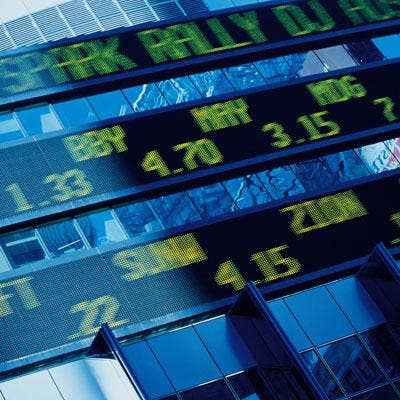
Stock Price Winners Outnumber Losers 3-To-1 In The First Half Of 2017
Stock markets got off to a roaring start in 2017 and continued an upward climb through the first half of the year, fueled at least in part by investors who expected tax cuts and fiscal stimulus spending under President Donald Trump.
That likely gave a boost to technology stocks: Thirty-two of the 42 publicly traded IT companies on our watch list recorded stock gains in the first six months of 2017 – two-thirds of those by double-digit percentages.
How does that compare to the stock market overall? For the first half of the year the Dow Jones Index was up 8.03 percent while the Nasdaq was up 14.07 percent – the latter despite some index declines in June.
Here's a look at who was up and who was down for the first six months of 2017, starting with companies with the biggest gains in share price, based on stock closing prices on Dec. 30, 2016, and June 30, 2017.
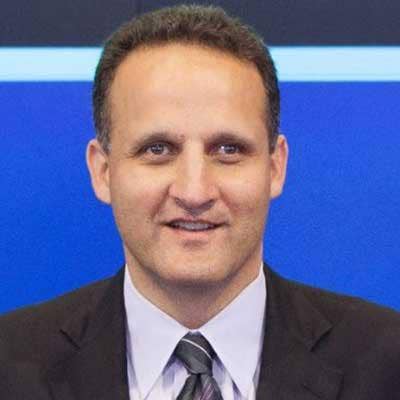
Tableau Software
CEO: Adam Selipsky
Dec. 30, 2016: $42.15
June 30, 2017: $61.27
Change: +45.36%
In 2016 Tableau's stock recorded the biggest decline among the companies on our watch list, largely due to a big drop in its stock price early in the year on what analysts saw as weak guidance for future results. So it's quite a turnaround for the company's stock to record the biggest share price gain in the first half of 2017.
For the first quarter of 2017 (ended March 31), Tableau reported revenue of $199.9 million, up 16 percent year over year from $171.7 million in first quarter of 2016. But the company's loss for the quarter increased to $54.6 million from $45.6 million in the same quarter one year earlier.
On June 1 Tableau released the 10.3 edition of its flagship data visualization software with data drive alerting, a smart recommendation engine and an expanded range of data connectors.
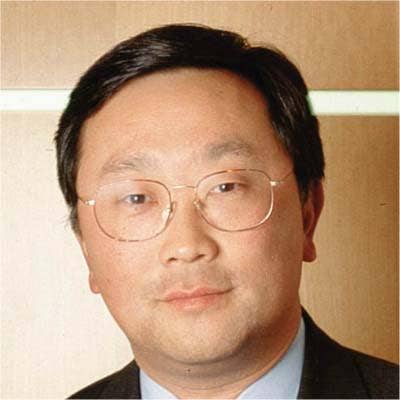
BlackBerry
CEO: John Chen
Dec. 30, 2016: $6.89
June 30, 2017: $9.99
Change: +44.99%
For its fiscal 2017 ended Feb. 28, BlackBerry reported revenue of $1.31 billion, down more than 39 percent from $2.16 billion in fiscal 2016. The company reported a loss of $1.21 billion for fiscal 2017 compared with a loss of $208 million in fiscal 2016.
The company returned to profitability in its first fiscal quarter (ended May 31) – although a $940 million arbitration award from Qualcomm in a dispute over royalties accounted for the gain. The company reported net income of $671 million compared with a $670 million loss in the same quarter one year earlier.
Revenue for the quarter was $235 million, down 41 percent from $400 million one year before. Those results, including an unexpected decline in software sales, missed financial analysts' expectations, causing the company's stock price to plunge June 23.

Red Hat
CEO: James Whitehurst
Dec. 30, 2016: $69.70
June 30, 2017: $95.75
Change: +37.37%
Open-source software developer Red Hat wrapped up a solid fiscal 2017 (ended Feb. 28), reporting that revenue for the fiscal year was $2.41 billion, up 17.5 percent from $2.05 billion in fiscal 2016. Net income for the year was $253.7 million, up more than 27 percent from $199.4 million one year earlier.
For its fiscal 2018 first quarter (ended May 31) Red Hat reported revenue of $596.5 million, up nearly 19 percent from $501.7 million in the same period one year earlier. Net income was $73.2 million, up nearly 20 percent from $61.2 million one year before.
In May Red Hat unveiled a deal to acquire Codenvy, a provider of development tools used by programmers to create container-based and cloud-native applications, for an undisclosed sum.
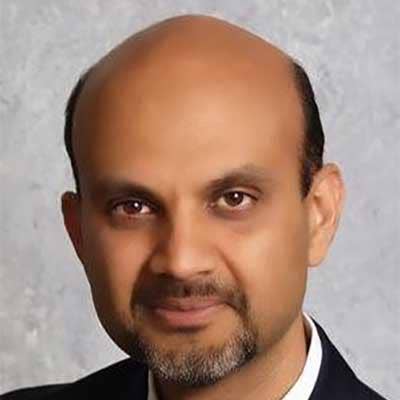
Carbonite
CEO: Mohamad Ali
Dec. 30, 2016: $16.40
June 30, 2017: $21.80
Change: +32.93%
In January Carbonite, a cloud data protection service provider, acquired the Double-Take Software assets of Vision Solutions in a move to expand its service offerings into high availability and data migration. That follows Carbonite's December acquisition of EVault, a provider of disaster recovery and business continuity services.
Both acquisitions are part of Carbonite's expansion beyond its original focus on consumers to providing data backup and other services for small and mid-size business.
For its first quarter (ended March 31) Carbonite reported that revenue increased more than 18 percent to $57.1 million from $48.1 million in the first quarter of 2016. The company reported net income of $7.6 million compared with a $4.7 million loss one year earlier.
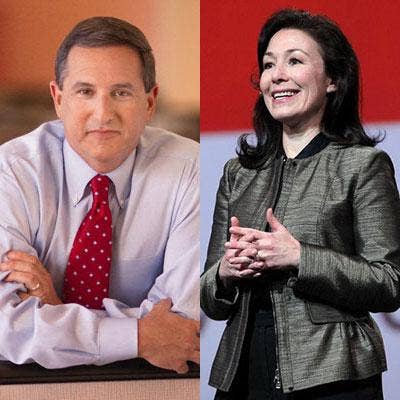
Oracle
Co-CEOs: Mark Hurd, Safra Catz
Dec. 30, 2016: $38.45
June 30, 2017: $50.14
Change: +30.40%
In January Oracle signed an agreement to buy Apiary, a provider of tools and application framework technology for developing application programming interfaces. In April the company reached a deal to buy Moat, a marketer of data analysis and digital measurement software used by media and publishers. Financial terms of both acquisitions were not disclosed.
The acquisition comes after Oracle made two major acquisitions in late 2016: cloud application developer NetSuite for $9.3 billion and DNS provider Dyn for a reported $600 million.
In June Oracle reported that revenue for its fiscal 2017 (ended May 31) increased 2 percent to $37.73 billion from $37.05 billion. Net income for the year was $9.34 billion, up 5 percent from $8.90 billion in fiscal 2016.

Western Digital
CEO: Steve Milligan
Dec. 30, 2016: $67.95
June 30, 2017: $82.53
Change: +21.46%
In January storage technology developer Western Digital named former Hewlett Packard Enterprise executive Martin Fink to be the company's new chief technology officer. Fink had served as HPE's CTO and director of HP Labs. Fink succeeds CTO Steven Campbell, who left Western Digital.
On June 26 the company said it expected revenue in its fourth quarter (ended June 30) to be $4.8 billion with non-GAAP earnings per share of $2.85. The company is scheduled to report fourth-quarter and fiscal 2017 results on July 27.
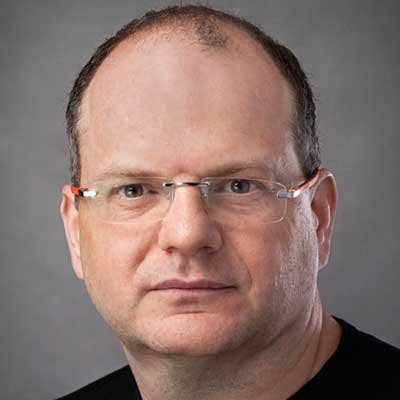
Check Point Software Technologies
CEO: Gil Shwed
Dec. 30, 2016: $84.46
June 30, 2017: $109.08
Change: +29.15%
In April Check Point introduced Check Point Infinity, a new, consolidated cybersecurity architecture designed to provide threat prevention capabilities across networks, cloud systems and mobile devices.
Also in April, Check Point reported that revenue in its first quarter ended March 31 was up 8 percent year over year to $435.5 million from $404.3 million one year earlier. Net income for the quarter was $182.6 million, up 9 percent from $167.4 million one year ago.
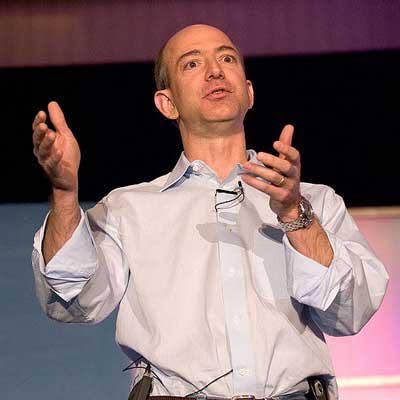
Amazon
CEO: Jeff Bezos
Dec. 30, 2016: $749.87
June 30, 2017: $968.00
Change: +29.09%
The big news in the ever-expanding Amazon universe this year was the June announcement of a blockbuster deal for Amazon to acquire grocery retailer Whole Foods for $13.4 billion.
On the IT side, Amazon Web Services continued its astounding growth in the first quarter ended March 31, reporting 43 percent growth in AWS revenue to $3.66 billion and generating $890 million in profit – that despite a number of price cuts during the quarter.

FireEye
CEO: Kevin Mandia
Dec. 30, 2016: $11.90
June 30, 2017: $15.21
Change: +27.82%
FireEye's stock had been on a long decline – dropping nearly 43 percent in 2016 – before rebounding a bit in the first quarter. FireEye also has been the subject of acquisition rumors: In February reports surfaced that Symantec had held talks with the company in recent months about a possible buyout.
For its first quarter ended March 3,1 FireEye reported revenue of $173.7 million, up 3 percent from $168.0 million in the same quarter last year. The company reported a loss of $83.0 million for the quarter, an improvement over the $155.9 million loss in the same quarter one year earlier.
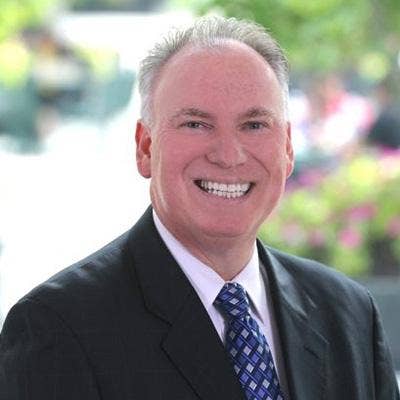
Xerox
CEO: Jeff Jacobson
Dec. 30, 2016: $22.61
June 30, 2017: $28.73
Change: +27.07%
Xerox split into two companies effective Jan. 2, 2017, one named Xerox focused on printers and other document technology hardware with expected annual sales of $11 billion, and the other named Conduent providing business process outsourcing services with expected annual sales of $7 billion.
Xerox has implemented a pair of stock splits this year, including a 1,518-for-1,000 stock split on Jan. 3 and a 1-for-4 reverse stock split on June 15. The Dec. 30, 2016, and June 30, 201, stock prices have been adjusted accordingly.
In March Xerox unveiled 29 new printers and multifunction devices in what the company called its biggest product launch ever.
In its first quarter ended March 31 Xerox reported revenue of $2.45 billion, down 6 percent from $2.62 billion in the same period one year earlier. Net income was $16 million, down more than half from $34 million one year before.
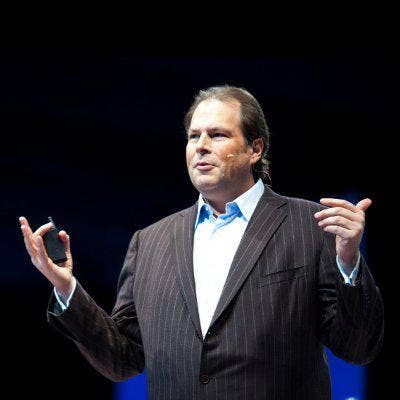
Salesforce.com
CEO: Marc Benioff
Dec. 30, 2016: $68.46
June 30, 2017: $86.60
Change: +26.50%
For its fiscal 2017 ended Jan. 31, Salesforce.com reported revenue of $8.39 billion, up nearly 26 percent from $6.67 billion in fiscal 2016. Perhaps even more significant was the $179.6 million in net income the cloud software company reported for the fiscal year versus the $47.4 million loss in fiscal 2016.
Salesforce is projecting that revenue in fiscal 2018 will be between $10.15 billion and $10.20 billion, a year-over-year increase of 21 percent to 22 percent. CEO Marc Benioff has long vowed to be the first cloud software company to hit the $10 billion revenue threshold.
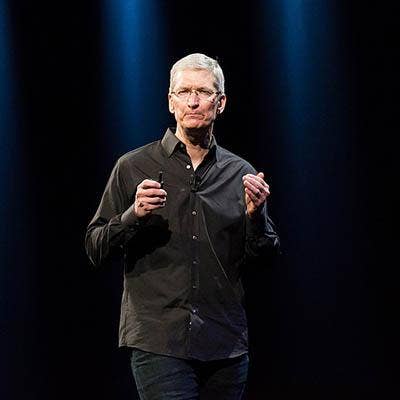
Apple
CEO: Tim Cook
Dec. 30, 2016: $115.82
June 30, 2017: $144.02
Change: + 24.35%
Apple's stock price grew by double digits in 2016 despite reporting in October the company's first year-over-year annual sales decline since 2001 and a drop in the giant company's profits.
For its second fiscal quarter ended April 1, Apple reported sales of $52.90 billion, up 4.6 percent from $50.56 billion in last year's second quarter. Net income was $11.03 billion, up nearly 5 percent from $10.52 billion one year earlier.

Fortinet
CEO: Ken Xie
Dec. 30, 2016: $30.12
June 30, 2017: $37.44
Change: +24.30%
Security technology vendor Fortinet had a turbulent 2016, undertaking an extensive reorganization of its U.S. enterprise sales operations. But ultimately the company managed solid growth in 2016, reporting in February that revenue for all of 2016 was $1.28 billion, up 26 percent from $1.01 billion in 2015.
That growth has continued in 2017 – and that's reflected in the company's stock price. For the first quarter ended March 31, Fortinet reported revenue of $340.6 million, up 20 percent from $284.6 million in last year's first quarter. Net income surged more than five-fold to $10.7 million from $2.1 million one year before.
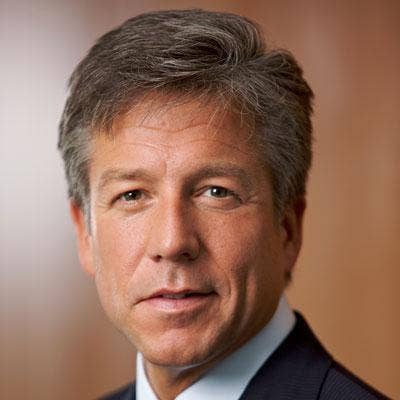
SAP
CEO: Bill McDermott
Dec. 30, 2016: $86.43
June 30, 2017: $104.67
Change: +21.10%
SAP continues to make progress in growing its cloud software sales with the company reporting 49 percent growth in new cloud bookings and 34 percent growth in cloud revenue.
Revenue in the first quarter ended March 31 was 5.29 billion euro (U.S. $5.76 billion), up 12 percent from 4.73 billion euro (U.S. $5.15 billion) in last year's first quarter. But after-tax profits were down 7 percent in the quarter to 530 million euro (U.S. $603.9 million) from 570 million euro (U.S. $621.1 million) one year ago.

Symantec
CEO: Greg Clark
Dec. 30, 2016: $23.89
June 30, 2017: $28.25
Change: +18.25%
Symantec has been through some turbulent times, including selling off its Veritas storage technology business in 2015 and buying security software developer Blue Coat Systems for $4.65 billion last August – the latter resulting in changes in Symantec's top executive ranks.
The changes appear to have given Symantec new momentum. Adding to that was the February acquisition of LifeLock, the provider of identity-theft protection and remediation services, for $2.3 billion.
For all of fiscal 2017 ended March 31 Symantec reported revenue of $4.02 billion, up 12 percent from $3.60 billion in fiscal 2016. But the company reported a $106 million loss for the year, compared with net income of $2.49 billion (the latter including income from discontinued operations) in fiscal 2016.

HP
CEO: Dion Weisler
Dec. 30, 2016: $14.84
June 30, 2017: $17.48
Change: +17.79%
HP Inc., a maker of personal systems and printers, was created in November 2015 through the split of Hewlett-Packard Co. into HP Inc. and Hewlett Packard Enterprise.
In March the Idaho Department of Administration proposed a deal to acquire HP's Boise, Idaho, campus for $110 million.
For its fiscal 2017 second quarter (ended April 30), HP reported revenue of $12.39 billion, up nearly 7 percent from $11.59 billion in last year's second quarter. But net income declined more than 11 percent to $559 million from $629 million one year before.
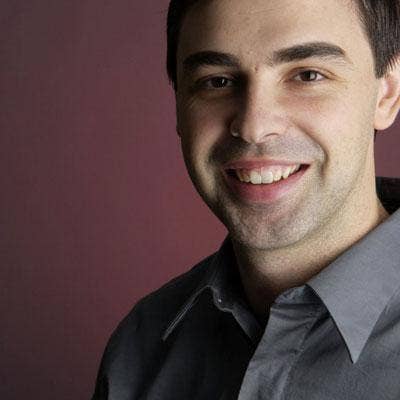
Alphabet
CEO: Larry Page
Dec. 30, 2016: $771.82
June 30, 2017: $908.73
Change: +17.74%
Alphabet, the parent company of Google, reported that revenue for its first quarter (ended March 31) was $24.75 billion, up 22 percent from $20.26 billion in the same quarter one year earlier. Net income was $5.47 billion, up 29 percent from $4.21 billion one year before.

Quantum
CEO: Jon Gacek
Dec. 30, 2016: $6.64
June 30, 2017: $7.81
Change: +17.62%
Quantum's stock price had languished below $1 per share since September 2015 and the company faced the prospect of being delisted from the New York Stock Exchange. So on April 3 Quantum announced a 1-for-8 reverse stock split effective at the close of trading on April 18 with common stock trading on the split-adjusted basis on April 19. The number of outstanding shares dropped from approximately 273 million shares to 34 million shares.
Quantum's stock closed at $0.83 per share on Dec. 30, 2016. That price has been adjusted to reflect the reverse stock split for the purpose of this analysis.
In March Quantum signed an agreement with VIEX Capital Advisors, which owns approximately 11 percent of Quantum's outstanding shares, to reconstitute the company's board of directors with a majority of new, independent directors over a period of several months.
For its fiscal 2017 (ended March 31,) Quantum reported revenue of $505.3 million, up 6 percent from $476.0 million in fiscal 2016. More importantly, the company reported net income of $3.6 million for the year compared with a $76.4 million loss in fiscal 2016.
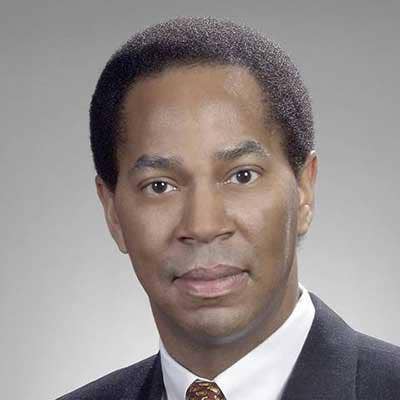
Eaton
CEO: Craig Arnold
Dec. 30, 2016: $67.09
June 30, 2017: $77.83
Change: +16.01%
For the first quarter (ended March 31), power management company Eaton reported sales of $4.85 billion, up less than 1 percent from $4.81 billion in the same period last year. Net income for the quarter was $432 million, up nearly 7 percent from $404 million one year ago.
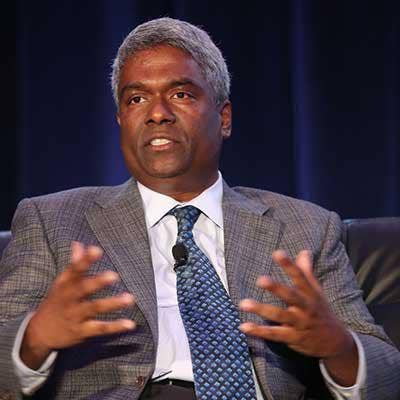
NetApp
CEO: George Kurian
Dec. 30, 2016: $35.27
June 30, 2017: $40.05
Change: +13.55%
In June NetApp entered the hyper-converged infrastructure market, debuting the NetApp HCI system that combines the company's SolidFire all-flash storage technology with other technologies.
In May NetApp made two acquisitions, Immersive Partner Solutions and PlexiStor, to help grow its converged infrastructure and cloud storage business.
For its fiscal 2017 ended April 28, NetApp reported revenue of $5.52 billion, down 0.5 percent from $5.55 billion in fiscal 2016. But net income for fiscal 2017 was $509 million, more than double the $229 million net income one year before.

Splunk
CEO: Doug Merritt
Dec. 30, 2016: $51.15
June 30, 2017: $56.89
Change: +11.22%
Splunk is a fast-growing developer of real-time operational intelligence software used for security, IT performance management, business analytics and other applications.
In April Splunk announced that its Splunk Cloud software was available through the Amazon Web Services Marketplace.
For its fiscal 2018 first quarter (ended April 30), Splunk reported revenue of $242.4 million, up 30 percent from $186.0 million in last year's first quarter. The company's loss was $99.9 million, about 1 percent below the $100.9 million loss reported one year before.

VMware
CEO: Pat Gelsinger
Dec. 30, 2016: $78.73
June 30, 2017: $87.43
Change: +11.05%
VMware's stock suffered a significant decline in 2015 when the Dell-EMC acquisition deal was announced (EMC owned a majority stake in VMware). But the stock bounced back last year and has continued to rise in 2017.
On March 30 VMware announced a deal with Dell Technologies under which VMware is repurchasing $300 million of VMware Class A common stock held by a Dell subsidiary. The plan is part of a previously announced $1.2 billion buyback authorization that extends through fiscal 2018. Dell will use the proceeds to repurchase Dell tracking stock for VMware – part of Dell's EMC acquisition agreement.
On April 4 VMware announced the sale of its vCloud Air hybrid cloud service to hyper-scale cloud provider OVH. The same month VMware struck a deal to buy Wavefront, a big data startup that markets a real-time analytics platform for monitoring and managing IT system performance,
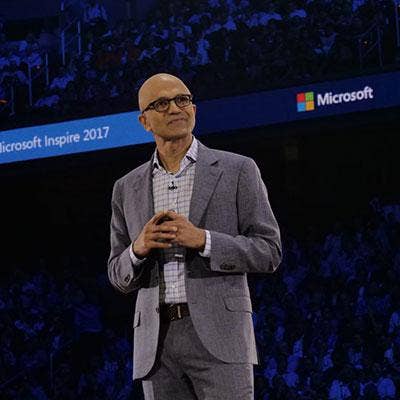
Microsoft
CEO: Satya Nadella
Dec. 30, 2016: $62.17
June 30, 2017: $68.93
Change: +10.87%
On June 29 Microsoft confirmed a long-rumored acquisition of Cloudyn, a developer of software used by businesses and managed service providers to manage their spending on cloud services. On June 8 the company unveiled a deal to acquire cybersecurity startup Hexadite.
For its fiscal 2017 third quarter (ended March 31), Microsoft reported revenue of $22.09 billion, up 7.6 percent from $20.53 billion in last year's third quarter. Net income was $4.80 billion, up nearly 28 percent from $3.76 billion one year before.
The company will report its fiscal 2017 fourth quarter and full year results on July 20.

Advanced Micro Devices
CEO: Lisa Su
Dec. 30, 2016: $11.34
June 30, 2017: $12.48
Change: +10.05%
Chipmaker AMD's technological prowess has been on display lately, putting more price-performance competitive pressure on longtime rival Intel. In March the company launched new Ryzen 7 processors, based on the company's Zen core microarchitecture, targeted toward PC gamers and other high-performance systems.
And in June AMD debuted its new Epyc line of processors that's designed to challenge Intel's hold on the server market.
For its first quarter ended April 1, AMD reported revenue of $984 million, up more than 18 percent from $832 million in the first quarter last year. The company reported a loss of $73 million compared with a loss of $109 million one year before.

Commvault Systems
CEO: N. Robert Hammer
Dec. 30, 2016: $51.40
June 30, 2017: $56.45
Change: +9.82%
Commvault Systems is a developer of enterprise data protection and information management technologies.
For its fiscal 2017 ended March 31, Commvault reported revenue of $650.5 million, up more than 9 percent from $595.1 million in fiscal 2016. Net income for fiscal 2017 was $540,000, up from $136,000 in fiscal 2016.

CA Technologies
CEO: Michael Gregoire
Dec. 30, 2016: $31.77
June 30, 2017: $34.47
Change: +8.50%
CA Technologies has been reinventing itself with a focus on systems and cloud management, security and DevOps software.
In January CA completed its acquisition of Automic Holding, a provider of business process and IT automation software, in a bid to expand its offerings in the digital transformation arena. And in April the company completed its acquisition of Veracode, a developer of technology used to secure web, mobile and third-party applications throughout the software development life cycle.
For its fiscal 2017 ended March 31, CA reported revenue of $4.04 billion, essentially flat with the $4.03 billion in revenue reported in fiscal 2016. Net income for fiscal 2017 was $775 million, down 1 percent from $783 million one year earlier.
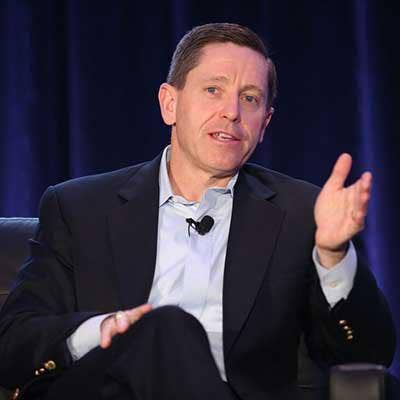
Palo Alto Networks
CEO: Mark McLaughlin
Dec. 30, 2016: $125.05
June 30, 2017: $133.81
Change: +7.01%
For the fiscal 2017 second quarter ended Jan. 31, Palo Alto Networks reported sales of $422.6 million. While that was up 26 percent year over year, it was more than $7 million short of financial analysts' expectations. The company also reported a $60.6 million loss for the quarter. Following those results the company announced in February a plan to retool its sales strategy to address "go-to-market execution issues."
During Palo Alto Networks' third-quarter earnings call CEO Mark McLaughlin said the sales force reorganization was "on track" and beginning to deliver results. For its fiscal 2017 third quarter (ended April 30), the company reported sales of $431.8 million, up 25 percent from $345.8 million one year earlier. It reported a $60.9 million loss for the quarter compared with a $64.1 million loss one year before.
In February Palo Alto Networks completed its $105 million acquisition of LightCyber, a developer of automated behavioral analytics technology used for cybersecurity applications.

Lenovo Group
CEO: Yang Yuanqing
Dec. 30, 2016: $12.00
June 30, 2017: $12.71
Change: +5.92%
Lenovo has faced tough competition from Dell EMC, Hewlett Packard Enterprise, Cisco Systems and other vendors in the market for data center systems. In March the company hired former Intel executive Kim Stevenson as senior vice president and general manager of the Data Center Group.
In June the company unveiled its first full-fledged data center product portfolio under the ThinkSystems brand, including high-performance servers, all-flash storage systems and SAN products.
For its fiscal 2017 ended March 31, Lenovo reported revenue of $43.03 billion, down more than 4 percent from $44.91 billion in fiscal 2016. But the company reported net income of $530.4 million for fiscal 2017 compared with a $144.6 million loss the year before.
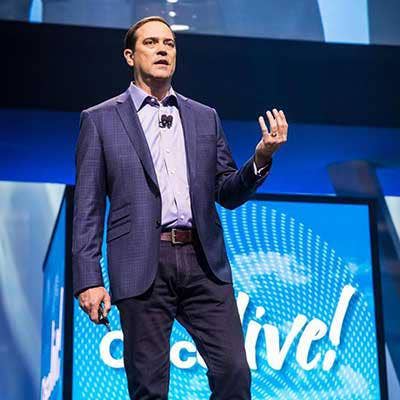
Cisco Systems
CEO: Chuck Robbins
Dec. 30, 2016: $30.22
June 30, 2017: $31.30
Change: +3.57%
In January Cisco unveiled a deal to buy AppDynamics, a provider of cloud application and business monitoring technology, for $3.7 billion. The acquisition was completed in March.
In May Cisco struck deals to acquire two companies: artificial intelligence startup MindMeld for $125 million and software-defined WAN vendor Viptela for $610 million.
For its fiscal 2017 third quarter (ended April 29), Cisco reported revenue of $11.94 billion, down 0.5 percent from $12.00 billion in the same quarter one year earlier. Net income for the quarter was $2.52 billion, up 7 percent from $2.35 billion one year before.

Seagate Technology
CEO: Stephen Luczo
Dec. 30, 2016: $38.17
June 30, 2017: $38.75
Change: +1.52%
For its fiscal 2017 third quarter (ended March 31), storage technology developer Seagate reported revenue of $2.67 billion, up 3 percent from $2.60 billion in the same quarter one year earlier. The company reported net income of $194 million for the quarter compared with a $21 million loss one year before.

Brocade Communications Systems
CEO: Lloyd Carney
Dec. 30, 2016: $12.49
June 30, 2017: $12.61
Change: +0.96%
Networking technology supplier Brocade Communications Systems agreed to be acquired by semiconductor maker Broadcom for $5.9 billion ($12.75 per share) in a deal announced Nov. 2. The companies now expect to complete the acquisition in August and there has been very little change in the company's stock price since the deal was announced.
Once the acquisition closes, Broadcom will retain Brocade's Fibre Channel SAN switching business and divest other parts of Brocade's business. That includes selling Brocade's IP networking operations – including the Ruckus Wireless business Brocade bought in 2016 for $1.2 billion – to Arris International and Brocade's data center networking business to Extreme Networks.

CenturyLink
CEO: Glen Post
Dec. 30, 2016: $23.78
June 30, 2017: $23.88
Change: +0.42%
CenturyLink is in the process of acquiring Level 3 Communications for about $34 billion in cash and stock in a deal unveiled Oct. 31, 2016. The companies hope to complete that acquisition by the end of the third quarter.
On June 1 CenturyLink announced a CEO succession plan under which Level 3 President and CEO Jeff Storey will join CenturyLink as president and chief operating officer once the acquisition is completed. Glen Post will remain CEO until Jan. 1, 2019, when Storey will take over as CEO and Post becomes executive chairman.
In May CenturyLink completed the sale of its data centers and co-location business to Cyxtera Technologies, a newly formed secure infrastructure company owned by a consortium of equity fund companies. CenturyLink received $1.86 billion in the sale and plans to apply the proceeds to the Level 3 acquisition cost.

Juniper Networks
CEO: Rami Rahim
Dec. 30, 2016: $28.26
June 30, 2017: $27.88
Change: -1.34%
Juniper Networks is the first company on our technology watch list to record a decline in its stock price in the first half of 2017.
In March Juniper Networks reorganized its corporate structure in what the company described as an effort to better support the vendor's innovation strategy.
For its first quarter ended March 31, Juniper Networks reported revenue of $1.22 billion, up 11 percent from $1.10 billion in the same quarter one year earlier. Net income for the first quarter was $108.8 million, up 19 percent from $91.4 million one year before.
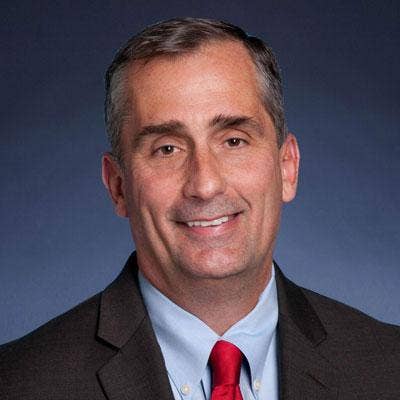
Intel
CEO: Brian Krzanich
Dec. 30, 2016: $36.30
June 30, 2017: $33.74
Change: -7.05%
Stagnant PC sales have meant slower revenue growth for Intel in recent years given its dependence on selling processors for that market. The company has struggled to compete in the market for chips for mobile devices, but it has been growing its sales of processors for data center systems, the Internet of Things market, artificial intelligence and other emerging areas.
On March 13 the company unveiled a blockbuster deal to acquire Mobileye, a manufacturer of chip-based camera systems for connected cars, for $15.3 billion.
In April Intel completed the spinoff of its security business, now an independent security software company that carries the same McAfee name it did when Intel acquired it in 2010. The deal was valued at $4.2 billion.
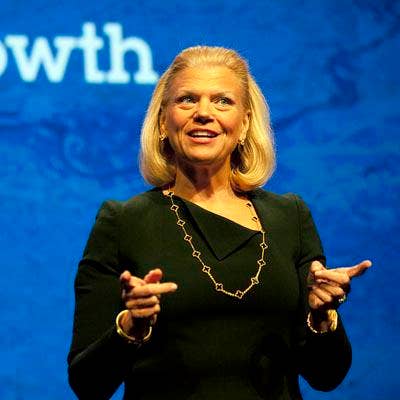
IBM
CEO: Virginia Rometty
Dec. 30, 2016: $165.99
June 30, 2017: $153.83
Change: -7.33%
IBM has been working through a business transformation to focus on high-margin cloud, analytics, mobile, social and security businesses that now account for nearly $33 billion in annual sales – 40 percent of the company's overall revenue.
In April the company reported that sales in its first quarter ended March 31 declined 2.8 percent to $18.16 billion – the 20th straight quarter of year-over-year revenue declines for the company.

Citrix Systems
CEO: David Henshall
Dec. 30, 2016: $89.31
June 30, 2017: $79.58
Change: -10.89%
On Feb. 1 Citrix completed the spin-off of its GoTo business, which was merged with LogMeIn in a transaction valued at $1.8 billion. Under the deal announced in July 2016, Citrix shareholders received 0.1718 shares of LogMeIn stock for each share of Citrix common stock they owned as of Jan. 20.
For its first quarter ended March 31, Citrix reported revenue from continuing operations of $662.7 million, up 1 percent from $658.8 million in last year's first quarter. But net income from continuing operations was $70.3 million, down 4 percent from $73.3 million one year before. Bottom-line net income for the quarter, after a loss from discontinued operations, was $27.6 million
On July 10, after the period covered in this analysis, Citrix announced that Kirill Tatarinov was out as president and CEO, a job he had held since January 2016. No reason for his departure was given other than it was by mutual agreement between Tatarinov and the company's board. CFO and chief operating officer David Henshall was named the company's new president and CEO.
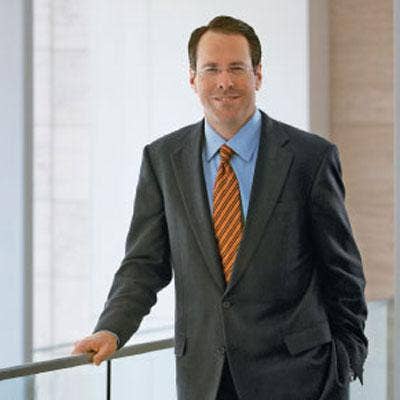
AT&T
CEO: Randall Stephenson
Dec. 30, 2016: $42.53
June 30, 2017: $37.73
Change: -11.29%
During the first half of 2017 AT&T continued taking steps to complete its $85.4 billion acquisition of global entertainment and media powerhouse Time Warner, which was announced in October 2016. The acquisition, which AT&T hopes to close this year, is part of a broader trend among telecommunications carriers to add content to their offerings.
In June AT&T struck a deal to acquire Brocade Communications' Vyatta Software Platform, signaling a significant shift in how the company will provide networking solutions in the future. (The acquisition closed July 7.)
For its first quarter ended March 31 AT&T reported revenue of $39.37 billion, down nearly 3 percent from $40.54 billion in last year's first quarter. Net income for the quarter was $3.57 billion, down 8 percent from $3.89 billion one year before.

F5 Networks
CEO: Francois Locoh-Donou
Dec. 30, 2016: $144.72
June 30, 2017: $127.06
Change: -12.20%
In January F5 Networks named Francois Locoh-Donou, senior vice president and chief operating officer at networking vendor Ciena, to be the company's new president and CEO effective April 3. Locoh-Donou replaced longtime CEO John McAdams, who retired.
For its 2017 fiscal second quarter (ended March 31), secure application delivery vendor F5 Networks reported revenue of $518.2 million, up more than 7 percent from $483.7 million in the second quarter of fiscal 2016. Net income for the quarter was $93.1 million, up 23.5 percent from $75.4 million one year earlier.
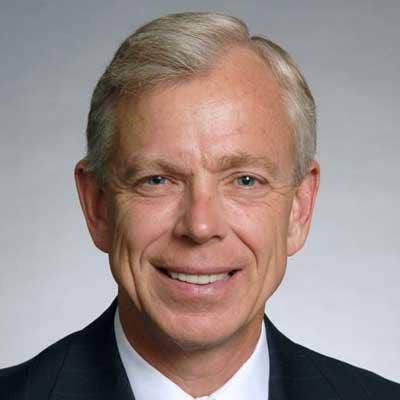
Verizon Communications
CEO: Lowell McAdam
Dec. 30, 2016: $53.38
June 30, 2017: $44.66
Change: -16.34%
On March 31, Verizon announced a comprehensive restructuring of the company to focus on three areas: Media and Telematics, Network and Technology, and Customer and Product Operations. The company hired former Ericsson CEO Hans Vestberg to lead the Network and Technology operations.
Following a monthlong bidding war, Verizon said in May that it would acquire wireless spectrum holder Straight Path for $3.1 billion in an all-stock transaction. Verizon beat out rival AT&T, which had entered into a merger agreement with Straight Path in April and bid $1.6 billion for the company.
And on June 13 Verizon closed its $4.48 billion acquisition of Yahoo and its popular media assets, including its sports and finance content. Verizon plans to combine those assets with the AOL assets it acquired in 2015 into a subsidiary called Oath. The acquisition price was $350 million less than the two companies originally negotiated – the lower price reflected Yahoo's reduced value after the disclosure of two major security breaches in 2013 and 2014 that exposed 1.5 billion user accounts.

Netgear
CEO: Patrick Lo
Dec. 30, 2016: $54.35
June 30, 2017: $43.10
Change: -20.70%
For its first quarter ended April 2, networking products manufacturer Netgear reported revenue of $323.7 million, up more than 4 percent from $310.3 million in the same quarter in 2016. Net income for the quarter, however, was down 3.6 percent to $16.0 million from $16.6 million one year earlier.

Nutanix
CEO: Dheeraj Pandey
Dec. 30, 2016: $26.56
June 30, 2017: $20.15
Change: -24.13%
Cloud computing system vendor Nutanix's stock declined more than 37 percent in March – with the share price falling from $31.12 at the close of trading March 2 to $23.00 at the close of trading March 3.
That came after the company reported financial results for its fiscal 2017 second quarter (ended Jan. 31) that included revenue of $182.2 million, up 77 percent from $102.7 million in the same quarter one year earlier. Despite the solid revenue growth, the company issued guidance for the third quarter that disappointed investors and analysts, leading to the March stock plunge.
The stock continued to decline until bottoming out at $14.46 per share on May 1 and has rebounded somewhat since then.
For its fiscal 2017 third quarter (ended April 30) Nutanix reported revenue of $191.8 million, up 67 percent from $114.7 million in last year's third quarter. The company reported a net loss of $112.0 million for the quarter compared to the $46.8 million net loss reported one year earlier.
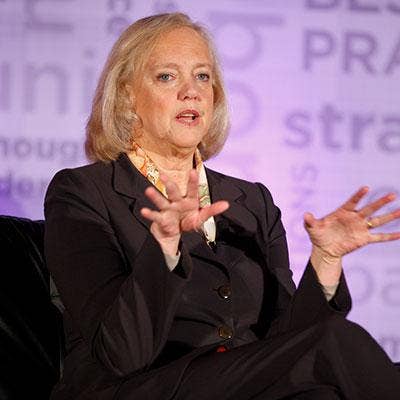
Hewlett Packard Enterprise
CEO: Meg Whitman
Dec. 30, 2016: $23.14
June 30, 2017: $16.59
Change: -28.31%
In January HPE struck a deal to buy hyper-converged infrastructure pioneer SimpliVity for $650 million, an acquisition that was completed Feb. 17. HPE is integrating SimpliVity's hardware and software with HPE servers in a bid to grab a share of the fast-growing hyper-converged infrastructure market.
In March HPE signed an agreement to acquire Nimble Storage, a manufacturer of all-flash and hybrid-flash storage systems, for $12.50 per share or $1.0 billion in cash. HPE completed the Nimble acquisition April 17.
On April 3 HPE completed the spin-off of its HPE enterprise services business, which merged with CSC to create the new solution provider DXC. HPE said that deal would deliver approximately $13.5 billion in value to stockholders through an equity stake in DXC, a cash dividend payment, and DXC's assumption of debt and other liabilities.
The price of HPE's stock was adjusted at the start of trading April 3, from the $23.70 March 31 closing price to $18, to account for the 0.086 shares of DXC common stock shareholders received for each share of HPE stock.
For its fiscal 2017 second quarter (ended April 30), HPE reported revenue of $7.45 billion, down 12.5 percent from $8.51 billion in last year's second quarter. The company reported a $612 million loss for the quarter compared with net income of $320 million in the same quarter one year before.